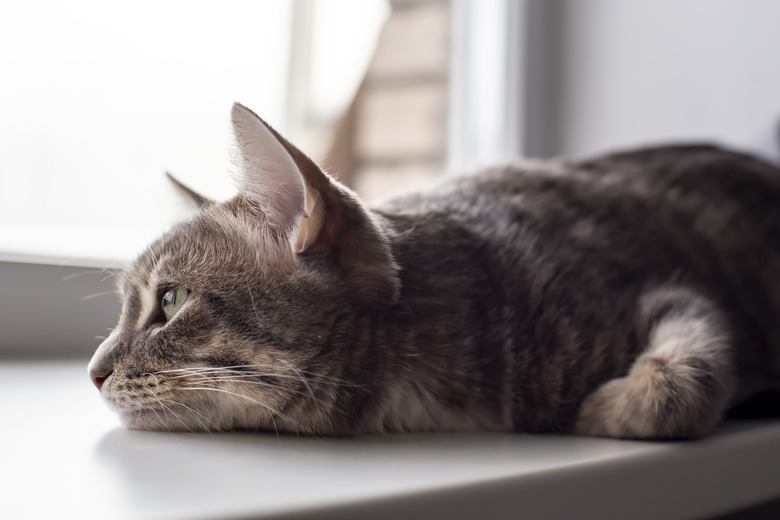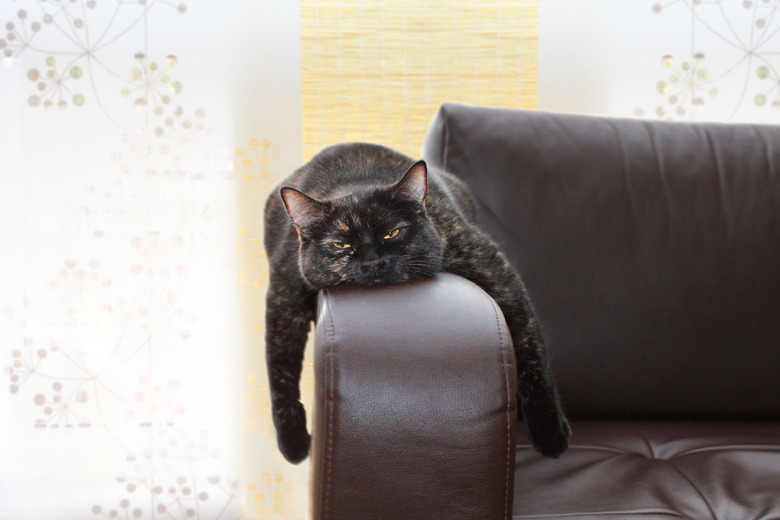How To Treat Cat Depression
Cats are affected by many of the same conditions that affect humans, including anxiety and depression. It's important for you to be able to recognize when your cat could be depressed so that you can work with your vet to help your cat feel better. Medication and modifications to the environment may be necessary to treat your cat's depression.
Recognizing cat depression
Recognizing cat depression
Signs of depression in cats can be subtle. Pay close attention to your cat's behavior and take note when something is amiss. If your cat is depressed, he may be lethargic and sleep more than usual; experience loss of appetite and lose weight; groom himself less often, resulting in a dull or matted coat; withdraw and hide more than usual; vocalize more than usual; or be more aggressive toward people and other pets in the home. Though it is not as common as loss of appetite, a depressed cat may overeat and gain weight.
If you notice your cat exhibiting any of these signs, you should take him to the vet. Many other medical conditions can account for the signs of depression, and only a veterinarian will be able to determine what is causing your cat's symptoms. Treatment recommendations will be related to what is causing your cat's depression. Tell your vet about any recent changes in your cat's life or environment.
Give extra attention
Give extra attention
Give your cat a little extra attention to help her feel better. If she likes to be held, spend more time holding her. If she likes to play, spend more time playing with her. Buy or make her a new toy. Give her some extra-special treats.
Provide mental stimulation
Provide mental stimulation
Sometimes, cats get depressed simply because they don't have enough mental stimulation. Giving your cat vertical space, such as a cat tree, especially near a window, will provide him with some mental stimulation. Place a birdfeeder outside a window or pop in a DVD for cats. Harness and leash-train your cat and take him for walks.
Use puzzle toys to give your cat his meals. Hide a few treats around the house each day for your cat to hunt and find. Hide the treats in different locations every day so your cat must continuously search for them. Interactive cat toys are another great way to provide mental stimulation. However, cats get bored with the same toys, so give your cat a few toys at a time and rotate them every few days to keep him interested.
Pain management for cats
Pain management for cats
If your cat is depressed because she's in pain, finding effective ways to manage your cat's pain will be important to her depression treatment. Your vet can prescribe medication to help with pain. You can also make modifications to your house to help reduce your cat's pain. For instance, you can put pet stairs near your bed, your cat's tree, and windows to make getting to her favorite spots easier. Using elevated food and water dishes may also reduce your cat's pain at mealtimes.
Antidepressants for cat depression
Antidepressants for cat depression
Your vet may recommend an antidepressant for your cat if other approaches to treatment don't work. Vets usually recommend selective serotonin reuptake inhibitors for the treatment of depression, as they are typically well-tolerated by cats. It's important to follow up with your vet after your cat is prescribed antidepressants so that your vet can make any necessary adjustments to your cat's medication or dosage.

